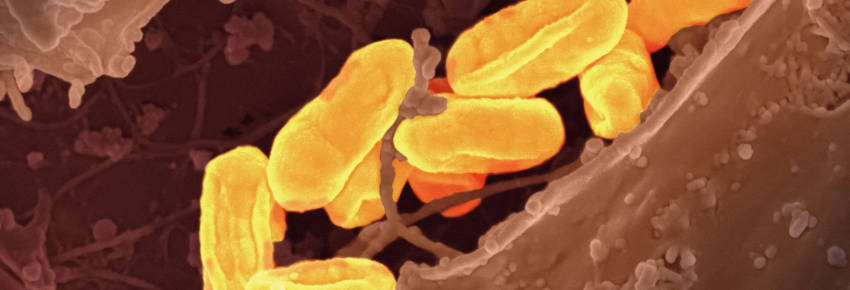
Microbiota transplants, also known as fecal microbiota transplants (FMT), can improve gut health by restoring a healthy balance of bacteria in the gut biome. That means increasing the amount of beneficial bacteria and decreasing the amount of unhealthy bacteria in the gut. Reducing the unhealthy bacteria is important for reducing the risk of disease or inflamation in the intestines.
The restoration of bacterial balance in the gut biome happens in a sequence of stages after an FMT procedure is accomplished. When the donor's fecal bacteria are first implanted to the recipient's gut, the new bacteria begin to multiply and compete for resources against the unhealthy (called "pathogenic") bacteria. The new bacteria do several things to establish balance, including taking adhesion sites on the gut and producing peptides which work against the pathogenic bacteria.
New bacteria introduced into the gut will act quickly as balance is restored, with the beneficial effect of strengthening the immune system and better function in the digestive system. For example, bifidobacterium and lactobacillus produce short chain fatty acids which make it more difficult for harmful bateria, such as escherichia and clostridium, to survive. The new bacteria will also consume nutrients, depriving them from those harmful bacteria. Without as much pressure on the immune system, it becomes more effective against pathogens. Also, without the harmful toxins produced by bad bacteria, the gut becomes more healthy.
When multiple families of the good bacteria are numerous in the gut, with fewer pathogenic types, the recipient becomes unburdened by various gastrointestinal disorders. Notably, recipients see a reduction in clostridioides difficile infection, inflammatory bowel disease (IBD), and irritable bowel syndrome (IBS). Some benefits are real, without an obvious connection to gut health. Recipients enjoy reduction in problems with anxiety, depression, and autoimmune disorders.
© 2022 - 2026 ifecal.com, All Rights Reserved. Written and curated by Wellness Advisor Eduardo Contee Contact, Privacy Policy and Disclosures, XML Sitemap.